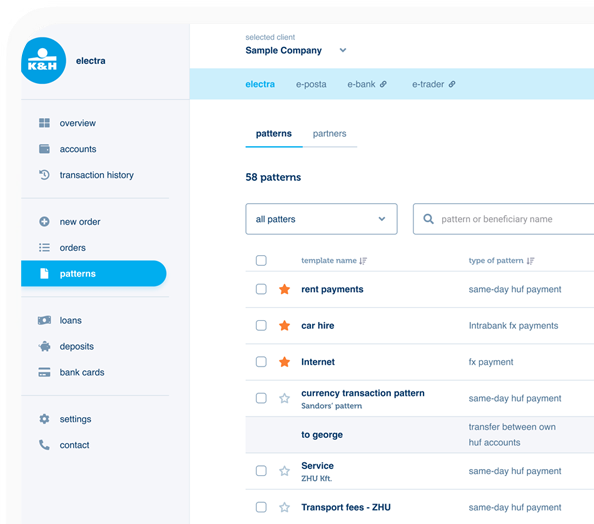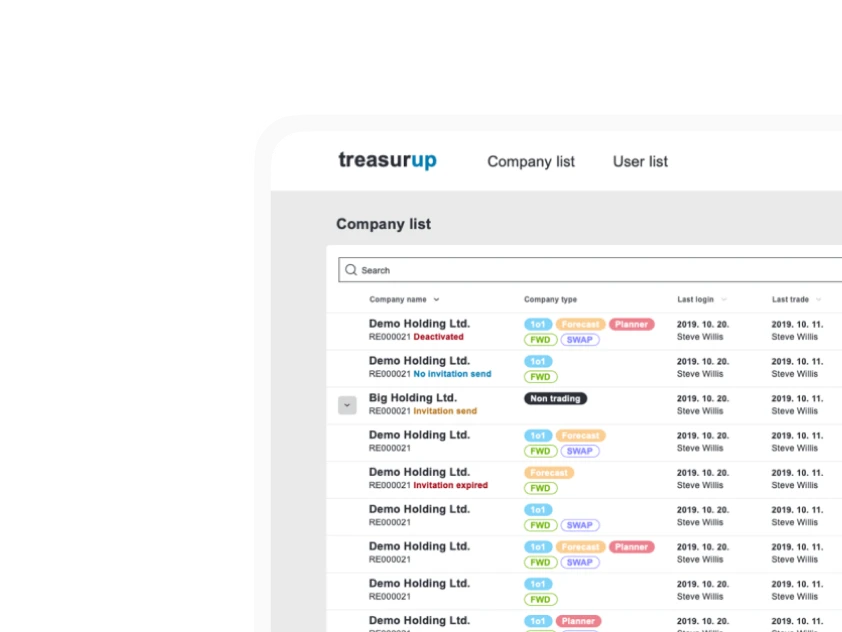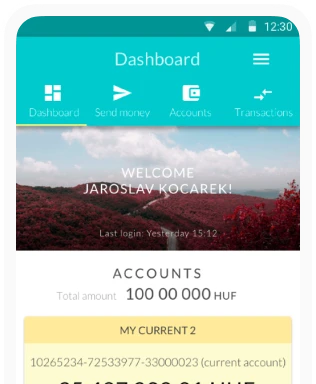Launching the Spaceship - Fintech in Uzbekistan
Ruslan Bogdanov, Project Manager at Ipoteka Bank, describes his surprise when permanently moving to Uzbekistan in 2023. Born in Czechia and having spent most of his life in Russia, Ruslan began discovering how much culture and traditions have affected banking and Fintech solutions in a way not shared in Europe. Uzbekistan was largely closed to the outside world prior to 2016, when the new President, Shavkat Mirziyoyev, started to open the borders of this landlocked country. “People here still have many friends and relatives in Russia from when it was part of the USSR, and many have migrated to work or study there. They have contacts all around the region so it's in the culture to send money to parents, sisters, brothers, friends,” Ruslan explains. This resulted in the rapid growth of relatively simple P2P payment systems. Of these, Click and PayMe have now developed ecosystems which allow wider functions. “One of the lessons we learned here is that any solution started in a young market should be simple.”
 Ruslan Bogdanov - Ipoteka Bank Project Manager
Ruslan Bogdanov - Ipoteka Bank Project ManagerMarket-led repurposing
A result of this is a tendency to repurpose apps as they come to the market - something led by users themselves rather than by design. For example Telegram is not only used as a messaging service, but to order food and book taxis. Ruslan recalls thinking, “Sorry, this is Telegram - why don't you use web pages, or Google, or booking engines?” It took him a while to appreciate that general users simply don’t want, “Huge services with a lot of buttons, names, parameters. They want something familiar.”
As a result, Telegram gets used to order pizza as well as staying in touch with relatives. As Ruslan observes, “If you bring a spaceship here, it might be more than people actually need. They tend to value simple and practical solutions.”
Religion plays its part too
Another notable cultural feature is that religion is important in market offerings. Islam is the predominant faith and one tenet is not to have debt, loans or credits. Only Halal installment payments are allowed in Islam as they don't involve interest, so micro loans are popular to achieve purchases of small goods such as smartphones. Uzum Market presents a ‘simple and clean’ interface to purchase almost anything through a BNPL service. Uzum is the first Uzbek unicorn, which was only started in 2022 (with the concept being born around 2021). In just one and a half years Uzum grew to be a many-headed business. Yandex is another popular company that originally gained a foothold in the Uzbek market with a single solution for taxi bookings. It has now expanded to include Yandex Go, the restaurant ordering Yandex Eats, and more recently Yandex Lavka offering delivery of fruit and vegetables. Uzbeks are quickly getting used to this kind of easily approachable service, and the start of superapps. Ruslan foresees developments such as P2P currency exchange which he believes will become popular with Oson and Paynet being another two successful Fintech offerings in the payments space.
Safe but extreme
Look for Diyorbek Mukhammedov across social media and the chances are you’ll come across him giving an eloquent TEDx talk at Woosong University in South Korea when he was a student there. The connection with Korea led to his first job in Fintech, working as Regional Manager for Global Money Express with the purpose of driving remittances from Korea to former Soviet Union CIS countries. In 2021 however Diyorbek took up an offer from Visa to become only the second employee of the organization in Uzbekistan. He returned home to develop products strategy and sales, then moved on to business development with responsibility for seven leading banks as Visa ramped up its activities.After three years he was approached by UZCARD, the longest-established payment system in Uzbekistan.
 Diyorbek Mukhammedov - UZCARD Product Owner / Head of Premium
Diyorbek Mukhammedov - UZCARD Product Owner / Head of PremiumCommon Republican Processing Centre - aka UZCARD
Diyorbek recounts how since 2004 there was always UZCARD, with the creation of a national payment system and processing of the first transactions by the Common Republican Processing Centre. Then in 2019 the government created a second local and national payment scheme, HUMO. Prior to the introduction of this competitive element, international payment schemes did not fully work in Uzbekistan because the majority of existing POS terminals and ATMs didn’t accept international payment scheme cards. The addition of Humo to the mix was essentially a political decision, and along with political reforms and a new President came the opportunity to open up the economy. There were now three international companies: MasterCard, Visa, and UnionPay, and two national payment systems, UZCARD and HUMO. Everything, including POS and ATM transactions of international payment schemes, was routed through the local systems in two processing centers. “For customers, it made a really comfortable use case,” says Diyorbek. “And whether we wanted it or not, we had in effect created Open Banking - complete and fully working, compared to many European countries.”
UZCARD at the core
At the core of this revolution is UZCARD, and because of its ubiquity, many bank customers have all their needs met in terms of financial transactions, such as P2P transfers, checking the history of their cards, and payments to utilities and merchants, through the payment service providers, not only in their banking apps. Leading providers include Click and PayMe, but there are now more than 40 payment service providers on the market. “In terms of the card, controlling and seeing the balance and everything, they’re all fully functional, because they are connected to the local payment scheme processing centers of UZCARD and HUMO.”
Customers aren’t loyal to banks, and switch accounts a lot. This is because when launching new apps, banks typically offer free UZCARD and HUMO P2P transfers up to a specified amount. Naturally people follow the offers, and Diyorbek remarks that there are many largely unused banking apps on most smartphones: “Ah, this bank is providing 5 million Som of transfers free per month. This one is providing 10 million…” (10 million Som equals very roughly є676). “This offer has ended, this one has started.” Diyorbek characterises the situation as unique, but Uzbek citizens seem comfortable with the situation.
Young and tech savvy
That comfort in part comes from the general population being relatively tech savvy and young, with around 60% below thirty years old. Above 75% own smartphones, and about the same percentage have internet access. At the same time, Diyorbek doesn’t rate general financial literacy too highly and reports often quite primitive scams such as phishing. Related to this vulnerability, cash is still popular for around 60% of Uzbeks. The population is growing at a rate of around a million a year - currently from a figure of about 38 million - and there are 35 established banks, or as Diyorbek puts it, “About one bank per million people.” Neo and digital banks are on the rise too, with the first in-country being the Georgian TBC bank. Bricks and mortar banks are fading from the scene.
A time of innovation with the Fintech Association of Uzbekistan
It’s not often that someone says, ‘And then luckily we hit covid…’ but in telling the story of Fintech in Uzbekistan, that’s how Nargis Dustmatova recalls it. Only in terms of the boost the pandemic gave Fintech of course. As Chief of Growth and Chairwoman for the Fintech Association of Uzbekistan she’s well placed to give some of the background to a rapidly developing Fintech scene. “Covid gave a very big push in terms of innovation and mass adoption,” and Nargis describes how essentially everything was more or less in place - Know Your Customer, digital importing, the business processes all written, but with the political will to glue things together lacking. Suddenly everything changed and Uzbekistan was on the fast track to Open Banking, with sophisticated products, lots of wallets and mobile applications, along with emerging superapps.
Fintechs were being founded which went beyond the existing typical banking software providers or system integrators, and the market grew, particularly with payment providers, as it was relatively easy to get licences for P2P transactions.
New thinking, new skill sets
Nargis was there during this time of change, having worked as Managing Director for the ITCC Solutions Group for twelve years, starting in London. Then, “When the Uzbekistan market started to open up, I thought, maybe it's time to go back and see what's there. The new president was calling for Uzbek nationals overseas to come back to build the story, and I felt at the time: New thinking, new skill sets.”
Back in Uzbekistan she began to identify with others that there was a growing need for new Fintech companies to ‘speak with one voice’. The result was in effect the first Uzbekistan Fintech Association which was established in the private sector as a non-government and not for profit organization (NGO). FinExtra, a limited company banking software integrator was also established as part of the exclusive partnership with the third largest Fintech in the world, Finastra. FinExtra was tasked with transforming the risk management, global product locational and business operations of the Uzbekistan People’s Bank.
The new Association gave greater freedom to dealing with issues for new Fintechs entering the market, many of which were facing similar challenges about infrastructure, and integration components. A challenge of the time - and to some extent ongoing - was that banks had to manage assets and liabilities in ways that international investors would understand - not always easy with the prevalence of legacy Russian accounting standards. ‘Digitalization’ and ‘automation’ were typical buzzwords: “They were very posh to talk about but no-one did them,” Nargis says.
The scope and objectives of the Association
Currently the Association works mainly with Neobanks rather than those in state ownership, and Nargis points to the current fluidity of still- evolving regulations, for example in the Buy Now Pay Later space. Crypto and microfinance organizations are also coming under increasing regulatory examination. “It’s quite a diverse community that the Association is working with,” she notes. “We actively bridge between the regulator and Fintechs, encouraging innovation and trying to create balance.”
While that’s the primary objective of the Association, there’s also a secondary brief to reach out to the general population, which although financially savvy, tends to be less trustful of technology, particularly around financial services. Many people hold onto their cash, so a mission of the Association is to increase digital competence, especially in rural areas. A one and a half year program aimed at specific rural areas has been underway (by Summer 2025), with capacity building and introduction of technologies, in partnership with the largest local Fintech and e-commerce companies. The goal is to show people how to earn and use money through the new technologies.
Growing the ecosystem
A third pillar of the Association’s work is to help grow the ecosystem and encourage startups at the initial ideas stage. This includes running business accelerators, investing in and monitoring projects, and channeling international partners and investors towards new companies. “It’s a lot about investment in the future,” Nargis adds. Alliance-building is also a major area of the Association's activity, which looks outward to Türkiye, Azerbaijan, Kazakhstan, and Kyrgyzstan. There’s a lot of cross-pollination going on between these regional players, as companies establish footholds in their neighbouring country, sometimes sharing expertise, innovation and capacity building.
Focusing on fraud
Another important alliance is an anti-fraud initiative to counter cyber attacks, particularly by putting standards in place to help leading BNPL providers and Fintechs where the core business is transaction. “Apart from assisting them to see opportunities, of course we also talk about threats, and then creating standardization with all these companies. For example, we are building a centralized system for all the BNPL providers. A lot of our time is focused on this specific activity where we see more and more participants.”
The Association numbers around 100 corporate members across the areas of banking, microfinance and Fintechs. The Fintechs comprise payments, BNPL providers, system integrators, banking software providers, and microfinance organizations working in BNPL. There is a mix of international and local companies, all of which must be legal entities, with no membership for individuals. Of course once a company is a member, individuals from that company can attend Association sessions, webinars and events.
A pressing need
Some Fintech associations start almost as a club where like-minded entrepreneurs can meet and exchange ideas. Fintech Uzbekistan was created from a real and pressing need. At that crucial time of the pandemic, there was demand for an independent platform that could share knowledge because there was so little real data available online. Investors from international companies were hungry for statistics, and basic market information. Nargis recalls, “People needed to know about projects, risks, standards…” And they could do all that through the Association.
Many innovative products on the way
With no common language between us, the prospect of a meaningful interview seems unpromising, but Temur Ibroximov proposes we use translation apps. Surprisingly, the conversation flows quite well as we range over Fintech life in Uzbekistan, and Temur drops relevant information into the Zoom chatbox.
After working as Senior Product Manager of the superapp Click, he is now Senior Product Manager for Iman, a Fintech offering Sharia-compliant financial products, including retail fund investments, Buy Now Pay Later (BNPL), REIT and daily banking services. There’s a large shopping catalogue on the site including purchase of electronics, household goods and books, as well as clothing, sport and education - all within the principles of halal. The focus is on financial empowerment through transparent, interest-free financing models aligned with Islamic principles.
The banks are driving growth
Temur is a veteran of the Uzbek Fintech scene, which he describes as experiencing a phase of rapid growth as the country becomes ever more digitized. He quotes 2024 statistics that the volume of transactions through the interbank payment system was then worth 7,279 trillion S’om (UZS) - over $US 572 billion. In addition, instant payment systems, QR payments, and super apps are actively developing, of which Click is probably the most notable. Temur also mentions UZUM but points out that it's not a super app in the traditional sense, although it has indeed built a comprehensive digital ecosystem, integrating services across e-commerce, Fintech, and banking. These include Uzum Market, Uzum Bank, Uzum Nasiya - the Buy Now Pay Later service - plus express delivery via Uzum Tezkor. So there is a seamless experience across multiple verticals.
Another standout innovation is Iman’s Save Now Buy Later (SNBL) model - a Sharia-compliant alternative to BNPL that reflects the rising trend of conscious consumption.
Temur points out that strong drivers of Fintech growth in Uzbekistan have been payment systems such as PayMe and Click, thanks to the advent of Open Banking. Banks also increasingly offer their own digital products, integrating more deeply with Visa and Mastercard, which already offer local currency cards.
Enter new market players
On the banking front, Fintech is being boosted by the banks increasingly turning to mobile solutions, and the rapid uptake of digitalization is encouraged by government initiatives, as well as increased competition from inward foreign investment. So which companies are dipping their toes into the Uzbekistan banking and Fintech scene? Temur says that notable examples include Alif, founded in 2014 in Tajikistan, which like Iman, offers Sharia-compliant services via its Nasiya service, giving ‘a new level of obtaining installment purchases’. The Alif Mobi app provides money transfers, bill payments, and access to Alif Shop, a marketplace featuring over 250 partner stores. Since entering the Uzbek market in 2019, Alif has secured over $150 million in equity and investment, reflecting the company's commitment to promoting financial inclusion in the region.
The TBC Bank Group from Georgia has made significant inroads into Uzbekistan's Fintech sector, with the acquisition in 2019 of a 51% stake in Payme, the prominent digital payments provider. In 2023, TBC purchased the remaining 49% stake, aligning the bank’s strategy to create a leading Fintech ecosystem in Uzbekistan to leverage synergies between Payme and the digital bank, TBC UZ.
OTP Bank from Hungary is another foreign bank eyeing the Uzbeck market, acquiring a 73.71% stake in Ipoteka Bank - Uzbekistan's fifth-largest bank by assets - from the Ministry of Economy and Finance. This marks OTP's first acquisition in Central Asia and the first foreign participation in the privatization of Uzbekistan's banking sector. OTP ownership is set to increase to 100% by 2028. Developments such as these indicate the growing external interest in the Uzbekistan banking sector, particularly from neighboring Central Asian and European countries, and underscores the potential and attractiveness of Uzbekistan's financial landscape.
 OTP chairman Sándor Csányi, Uzbekistan President Shavkat Mirziyoyev, and Deputy Prime Minister Jamshid Khodjaev
OTP chairman Sándor Csányi, Uzbekistan President Shavkat Mirziyoyev, and Deputy Prime Minister Jamshid KhodjaevRegional opportunities
Nargis Dustmatova makes the caveat that just because a solution works in Uzbekistan doesn’t mean it can be copy-pasted to another country. The Uzbek consumer perspective is even different from city to city, and what works in Samarkand may not go down in Tashkent. And that’s not to even mention the autonomous republic of Karakalpakstan in northwestern Uzbekistan with its own constitution, government, and parliament.
Although there’s no one-size-fits-all solution for the region as a whole, Nargis does predict a growth area being cross border payments, from which new standards will emerge, “A bit like all the original Open Banking. When that happens it will be great. We’re reaching the level now where a lot of regional projects will emerge, backed by international partnerships.
Banks will evolve, with a lot of Fintech alliances. New domains will also emerge: on the insurance side, on the real estate part with PropTech, and through many more technologies in the superapps. It’s going to be more about customising products to meet consumer needs, not just focusing on financial services products.”
A love of change
Security will be (and is) very important and is something that the regulator is still struggling with. There’s also talk about the introduction of digital currencies but at present Nargis remains somewhat sceptical. What she does foresee is that Fiat crypto will be merged into a single app but reckons there’s a lot more that needs to be done to prepare the way. “So we still have a lot on our table. I'm not saying that digital currency shouldn't be enacted, because you can't stop it, but the real mass adoption will be to get those who are still under-covered by digital financial services onboarded first. We still have a large unbanked population. We still have a lot of people who don't really trust the traditional banking institutions. So these need to be the next focus.”
So that’s overall optimistic, yes?
The Chief of Growth and Chairwoman for Fintech Uzbekistan smiles, “It’s all very positive, otherwise I wouldn't be in this space. I love change. I love the innovation that we’re seeing. Some of the ideas are absolutely ridiculous. Some are absolutely crazy. But that's the fun part, right?”
 Fintech Association Uzbekistan
Fintech Association Uzbekistan Demographic factors
Cash is still important in Uzbek life, especially in the regions, but Temur Ibroximov notes that cash use is dropping, with January 2025 figures showing the share of cash in circulation within the total money supply having decreased by 2.3 percentage points, down to 19.2%. To some extent this is a reflection of wide demographic differences in the country, where in the capital, Tashkent, there is much quicker adoption of digital technologies and Fintech solutions. As connectivity and mobile networks expand and improve, more and more people are able to engage with digitalization. Financial literacy is also improving - slowly - although Temur reckons that there is a big need for more structured knowledge as regards apps among the general regional population. This is changing with more educational elements being directly incorporated into Fintech products, as well as public awareness campaigns by the government, supported by the banks.
Where there is money there is fraud…
Despite these positive trends, and as a result of more people engaging with banking and Fintech products, fraud is also on the rise. As Temur observes, “Where there is money, there is fraud!” All Fintechs are striving to combat fraud, with particular attention from the Central Bank of Uzbekistan, and since the start of 2025, all Fintech products are required to implement biometric verification linked to passport data. The Central Bank also has a measure until the end of 2025 limiting the number of card openings which are allowed: One person can open no more than 20 cards in total, with no more than 5 cards in a single bank.”
Processing centers are also working on anti-fraud methods by launching new products, such as Uzcard’s QR payments at Tez QR terminals, integrating Fintech products for QR code phone use without needing a card. Click has also launched facial recognition payment in metro stations in partnership with the ATTO public transport authority, using FacePay and PalmPay biometric systems.
New solutions and innovative products
Such biometrics are now in use for many Fintech products across Uzbekistan as part of the Know Your Customer process, with the MyID tool being a popular solution. As the website claims, ‘MyID provides genuine identification and authentication of individuals by unique biometric parameters of a person in order to provide them with authorized access to banking and other services both remotely and in person. The implementation of the project was completely carried out by local specialists.’
That’s an interesting point about ‘local specialists’ because Temur Ibroximov says that amongst all the growth and developments in banking and Fintech, one of the current downsides is the lack of enough homegrown IT talent - something which must be rectified. Scaling Fintech products from local to international is another challenge. However, despite these issues, he remains optimistic: “I expect to see many innovative products emerging in Uzbekistan in the coming years.”
Differentiation
With more contemporary approaches have come more varied offerings, particularly from UZCARD which started off as a one-size-fits-all product. As Diyorbek Mukhammedov says, “It was one type of card for everyone in the past - the same card, same permissions, same tariffs… The same everything, right?” Now UZCARD tailors offerings to what customers actually want. The UZCARD Student Card is an example of the new thinking, where not only is it a full bank card but also gives ID access to services such as libraries, and acts as a public transportation card. Giving customers what they need by market segmentation is the new way of working, and Diyorbek cites his own particular product, the premium UZCARD Sherdor card (Sherdor meaning ‘with lions’ after the 17th-century madrasa school in historic Samarkand, south east Uzbekistan). At the other end of the scale, there’s also UZCARD Kids to help children gain financial literacy while assuring parents of safety and security in the online world.
Will UZCARD become a superapp?
Making the user experience ever-easier is typified by TezQR which enables cardless transactions through QR codes, (‘Tez’ meaning simply ‘fast’). So UZCARD is heading towards assisting superapps and improving user experience. Diyorbek mentions Click, which is into almost every industry, but without a banking facility. Now you can reserve theatre seats or order flowers with Click, go to the market or write and pay for classified advertisements. PayMe is doing pretty much the same thing, and the Uzbekistan financial market is very much aware of the massive growth of Kaspi. The Hammasi Bittada ('everything in one') app from the telecoms operator Beeline also adds telemedicine to the mix. Startup activity is booming, and Fintechs are attracting about 60% of all Venture Capital, but while Diyorbek sees this as a stimulating time, he would love to see more balanced development when it comes to the regions.
Inward investment and skills
There is a cultural background to the growth of technology solutions in Uzbekistan, but another significant aspect is that until very recently all the investment and ecosystem building tended to be from foreign companies seeing the opportunities of the Uzbekistan market, rather than homegrown talent rising up. Ruslan Bogdanov is critical of many initial businesses started in the country that were based on old soviet-era management structures. He is keen to ‘say it softly’, but describes how often wealthy investors would hire-in tech talent for their start-ups with little proper planning, and then months into a project might change design parameters: “Oh let’s give this app a pink button to make it work!”
Of course he’s joking, but only partly, because the situation described is of a ‘classic’ old-style management structure, not in tune with contemporary ways of working. The churn of advisors and bought-in experts was high and generally unproductive but Ruslan points to increasingly professionalized management and - crucially - the growth of more homegrown talent. Even a few years ago he says the idea of a modern European-style banking system seemed impossible, and yet now he works using contemporary technologies, “Everything is changing in front of my eyes.”
The nurturing of junior talent is also changing with business initiatives such as the Uzum IT Academy and Kapitalbank Academy dedicated to increasing IT skills and service-oriented training.
Partnerships in unexpected areas
Finnext Asia was a highly significant 2024 meeting held in Uzbekistan, attended by 37 banks and the 5 largest telecom companies, ‘Dedicated to the strategic directions of bank development, payment institutions and Fintech in Uzbekistan and in Central Asia as a whole.’ Finnext was originally held in Russia, from 2012 onwards, and one of the challenges that Ruslan Bogdanov sees is that while Fintechs are likely to grow three-fold in the next five years, the talent pool is not necessarily set to expand at the same rate. Looking at the scope of Finnext ‘24, with its 7,000+ delegates, the rate of change and scope is perhaps a little daunting. The goal then was to define: ‘The role of Fintech in shaping the future of the industry, the role of neobanks and increasing competition, loyalty programs and concierge services, the first steps in using artificial intelligence, technological partnerships and cooperation in unexpected areas, data storage and management, and combating fraud.’ To use Ruslan’s analogy, that’s a big and complex spaceship to launch!
Despite the relatively young market, and the challenges of nurturing a tech-savvy workforce, Ruslan is optimistic for the future of Fintech in Uzbekistan. He points to the historic Silk Road connecting other countries and says that this trading mindset still exists, with Russia and China being massive potential markets. “I see an open country with lots of investment and a lot of activities. I see new brands coming here almost every day. I see how technology is growing and how new services start here, like any other European country.”
 An Uzbekistan Fintech Association meeting
An Uzbekistan Fintech Association meetingCultural or financial change, or both?
Talking to all these players, there’s the sense that from a slightly late start, Uzbekistan has stepped into the Fintech elevator several floors from the ground. Uzbekistan is an ancient country bursting with history, and the largest population in Central Asia. It’s rich in gold, copper and uranium and is a major producer of cotton (with over a quarter of the working population still involved in agriculture). The transition to independent statehood only began in 1991 with the Republic of Uzbekistan, and the opportunities for Banking and Fintech are still developing at a rapid rate. Perhaps more significantly than many countries, especially across Europe, culture has a bearing on the demand for Fintech services, and how they are used. Will culture bend Fintech to its needs, or will the steady rise of Fintechs change the culture? Time will tell.









